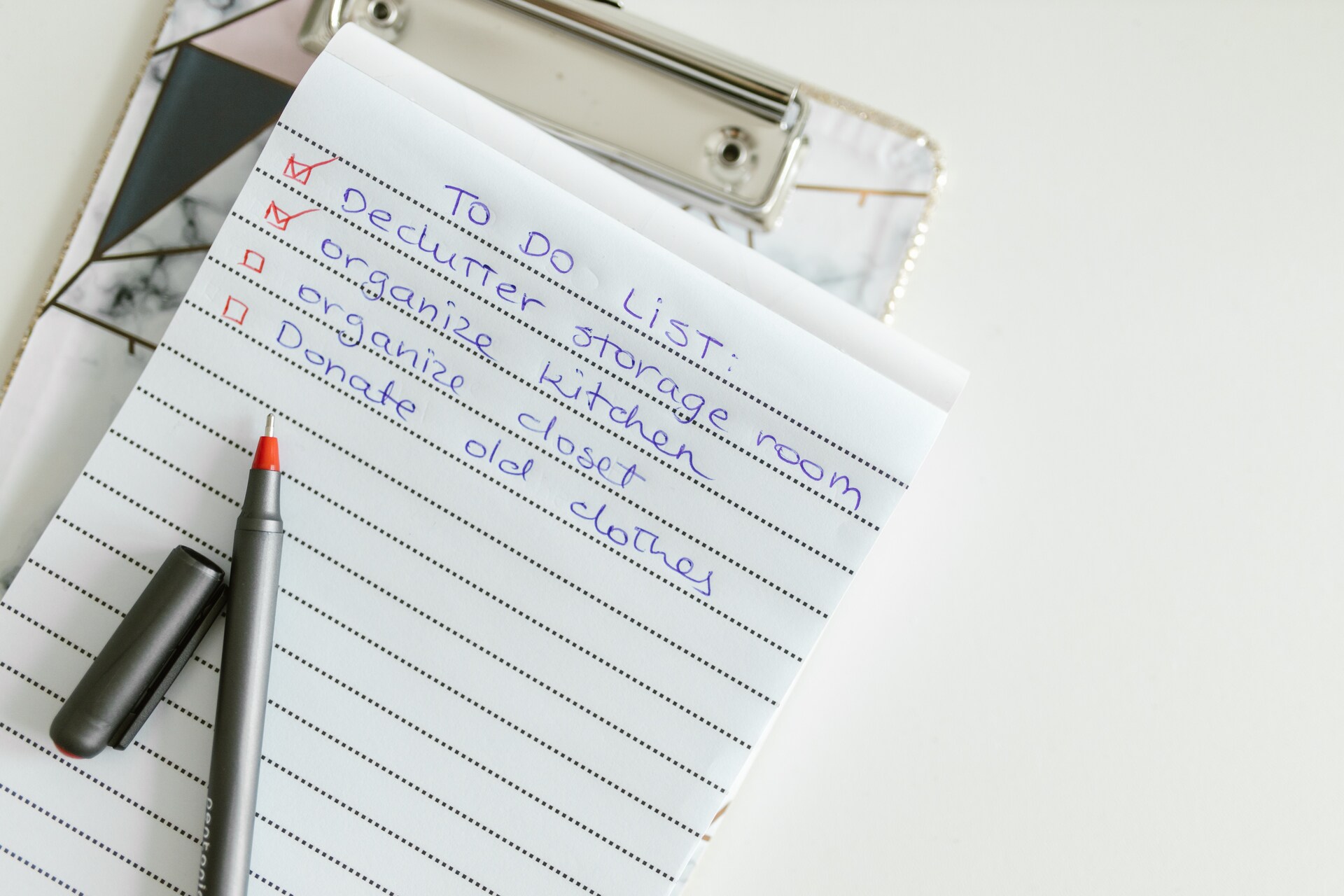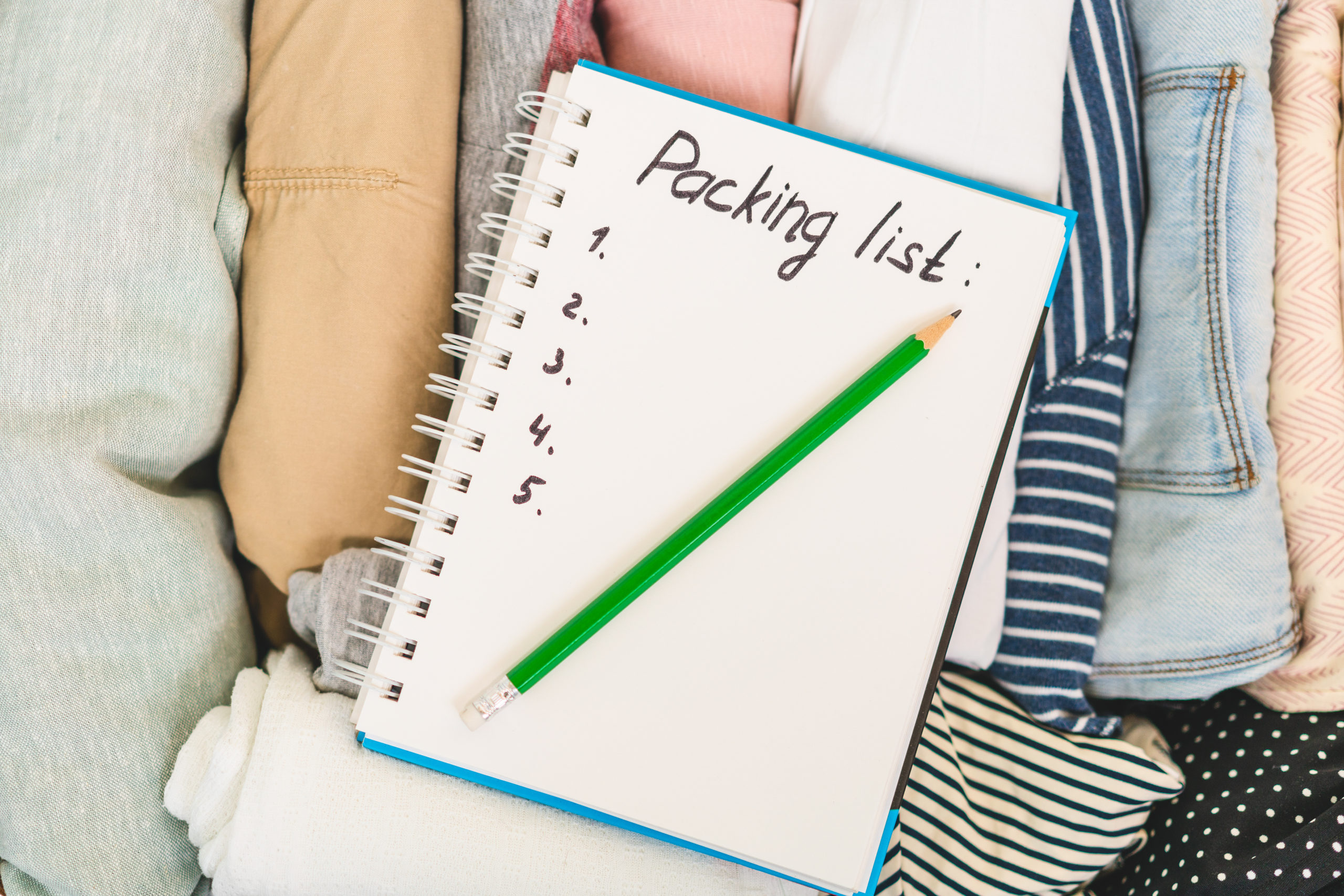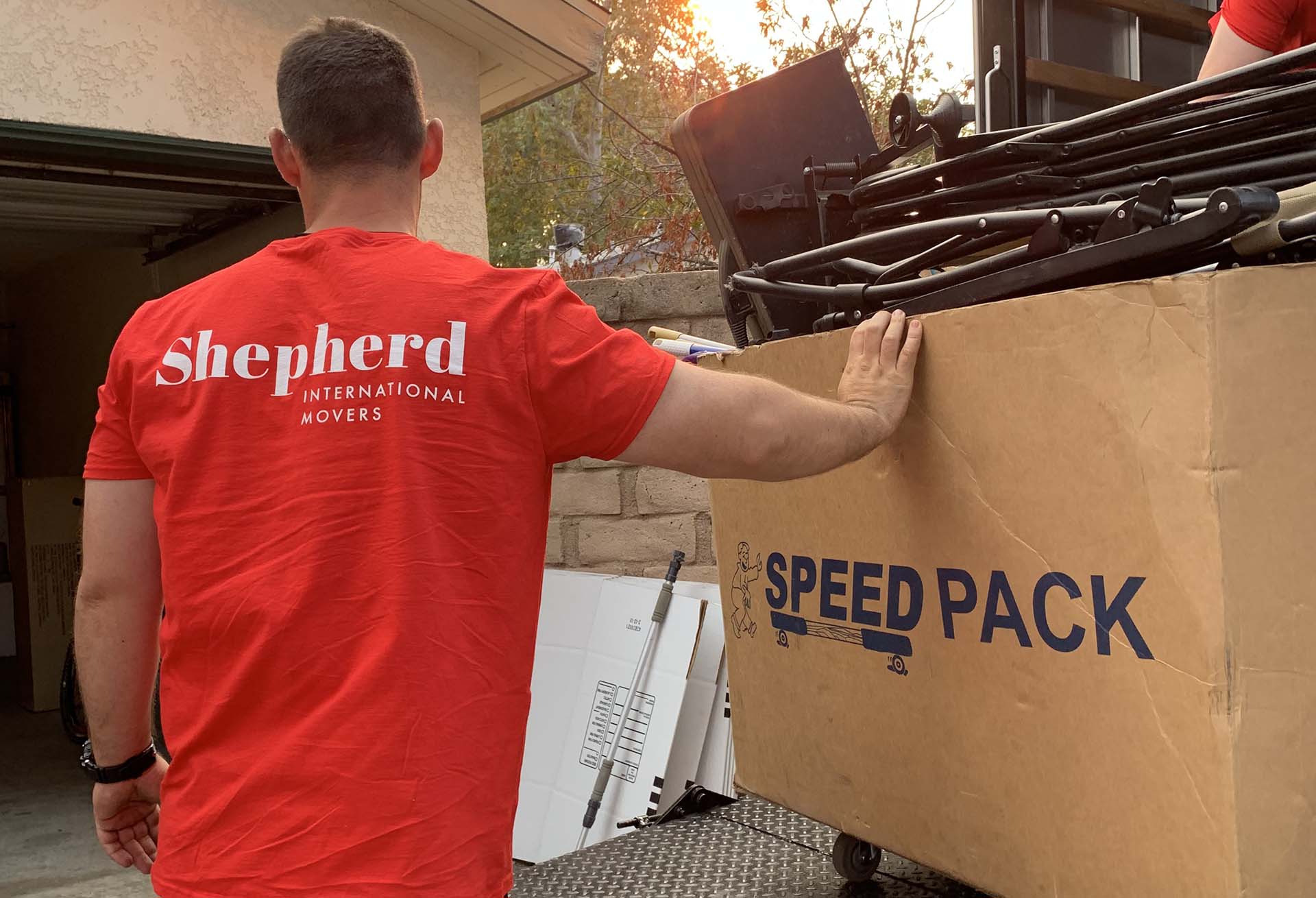

Embarking on an international move? Our comprehensive moving-out list of essentials guides you through essential tasks, from initial preparations to final actions, ensuring a seamless transition to your new home abroad. Let’s simplify your journey together.
A comprehensive list for moving out is your roadmap to a smooth relocation, particularly for an international move. It lays out essential tasks, including notifying your landlord or real estate agent, determining a moving timeline, sorting and decluttering, handling cleaning and repairs, and organizing your belongings for the move. Each step is designed to minimize stress and maximize efficiency, turning what could be an overwhelming process into a manageable one. With this list as your guide, you’ll be well-prepared to start your new chapter in a foreign land.
Prepare for the Move
Relocating across the world can be exciting, but it can also be overwhelming, stressful, and complicated. If you’re planning to relocate internationally, you need to be adequately prepared to ensure a smooth transition. One of the most critical aspects of moving overseas is thorough preparation and planning. But where do you start?
Notify Landlord or Real Estate Agent About Your Intention to Move Out
The first and most crucial step to preparing to relocate to another country is to inform and notify your landlord or real estate agent about your decision to move out. Depending on your lease agreement, you may need to provide a notice period of one to three months before moving out. This will give your landlord enough time to find new tenants and prepare the property for viewing. You’ll also need to arrange the return of your security deposit. Ensure you understand your lease agreement and follow the notice period guidelines to avoid penalties.
Determine the Moving Date and Create a Timeline
Once you’ve notified your landlord, the next step is to determine your moving date and create a timeline. This will help you stay organized and ensure that everything is done on time and not last minute. When choosing a moving date, consider factors such as your work schedule, the school calendar, and the availability of international movers. Create a timeline that includes all the tasks you need to complete before relocation, such as packing, canceling utilities, and forwarding mail. Assign a deadline to each task to keep yourself focused and motivated.
Research and Hire Professional International Movers
One of the most critical decisions you’ll make during your international relocation is choosing the right international moving company. Keep in mind that moving abroad requires a skilled and experienced team of professionals who can handle your belongings with care and professionalism.
When researching and hiring international movers, make sure to ask for recommendations, read online reviews, and check their licensing and insurance (look them up on the FMCSA website). Get quotes from at least three different movers to compare prices of international moving services. A reputable international moving company should provide a detailed estimate of all costs involved and answer any questions you may have about the relocation.

Start Sorting and Decluttering on Time
Starting the decluttering process early not only eases the physical task of relocation but also provides an opportunity to reevaluate what you truly need and want in your new home and what not to pack. Here’s how you can efficiently sort out your belongings:
- Start by taking an inventory of all your items. Go room by room and categorize each item into one of four categories – keep, donate, sell, or discard. Be ruthless in your decision-making, as this will reduce the volume of items to transport and can also make your new home less cluttered.
- As you pack, consider creating a system for organizing your boxes. Labeling boxes based on their content and the room they belong to will make unpacking at your new place much smoother. You could even consider color-coding for added efficiency.
- For items that are still in good condition but unneeded, consider donating them to charity or selling them in a yard sale. Many charitable organizations offer pickup services, making this a convenient option. If you choose to sell items, consider online marketplaces in addition to traditional yard sales. Remember to schedule these activities well in advance of your relocation to avoid last-minute stress.
Remember, sorting and decluttering are not tasks you want to leave until the last minute. A little organization now can save you a great deal of time and effort later on. The video below offers some tips on how to declutter faster so it doesn’t overwhelm you.
Pack and Organize Your Belongings
Packing and organizing your belongings is a time-consuming and challenging task that requires significant effort and planning. To ensure a smooth transition, create a list and start packing as early as possible and use high-quality packing materials. Label each box with a description of its contents and the room it belongs to. Create an inventory list of all your belongings and keep it with you during relocation. This will help you keep track of everything and ensure that nothing is left behind.
Start Packing Early
Don’t underestimate the time it takes to pack up your entire life. Begin packing weeks, or even months, in advance. This provides ample time to sort, pack, and label your belongings without rush. Starting early also allows you to tackle the process a bit at a time, which can help make the task feel less daunting. You can start with items used infrequently and gradually move to everyday essentials as the moving date gets closer.
Use High-Quality Packing Materials
The right packing materials can make all the difference in protecting your belongings during transit. Invest in sturdy boxes, packing paper, bubble wrap, and packing tape to secure your items. Specialized containers may be necessary for fragile items or high-value goods. Wardrobe boxes, for instance, are perfect for moving clothes on hangers, while dish barrel boxes are ideal for packing kitchenware.
Label Boxes Effectively
Each box should be labeled with a description of its contents and the room it’s destined for in the new home. This practice will not only make unpacking easier but will also be handy during the relocation if certain items are needed quickly. Consider using colored markers or colored tape for immediate visual recognition.
Create an Inventory List
An inventory list is an organized record of all your belongings that you plan to transport. This can be as simple as a handwritten checklist or a detailed digital spreadsheet with information about the contents of each box. This list will be invaluable in ensuring all items make it to the new home and can be particularly helpful if you need to file an insurance claim for lost or damaged goods.

Documentation and Legal Matters Are a Must on Every Moving-Out List
Before you jet off and start living your best life in a new location, it’s essential to ensure all documentation and legal matters are sorted out. Failing to do so could lead to some serious complications down the line. Don’t worry, though – there are four critical things you need to include on the list to get you covered.
Forwarding Mail and Updating Your Address With the Post Office
One of the first things you’ll need to do before you move out is to ensure all mail is being forwarded from your old address. You can do this by filling out a change of address form with the post office. This will ensure that all mail sent to your previous home gets forwarded to the new one, ensuring that you don’t forget anything important. It’s also a good idea to inform important parties, such as your bank and employer, of your change of address to ensure essential documents and mail items reach you at your new location.
Notifying Banks, Credit Card Companies, and Insurance Providers of Your New Address
Updating your address with financial institutions and insurance providers is crucial. This is because any information sent to your old address could be intercepted by someone else or mistakenly returned to the sender. Notifying them of your new address will ensure that all correspondence is sent to the correct location and helps avoid potential fraud by someone else receiving your mail.
Transferring Medical Records
Once you’ve moved, the last thing you want to do is to worry about your medical records getting lost. It’s essential to transfer your records if you’re moving internationally and far away from your hometown. You should inform your doctor’s office or medical service provider of your new address and request that your records be sent to your new physician. You should also ensure that you’re up to date with any vaccinations you may need for your new location.
Updating Registration for Schools
If you’ve got kids, it’s imperative to ensure their school records are transferred to their new school. This includes grades, test scores, and other important information necessary for their education. It’s also important to check if vaccination records are updated, as some schools may require specific vaccines for their students. Finally, make sure that your kids’ new school has all the necessary contact information.
Cleaning and Repairs Are Also Unavoidable Parts of the Move
Before you say goodbye to your current residence, there are a few more tasks to handle. A clean, well-maintained property is not only considerate towards the next occupants, but it can also impact the return of your security deposit.
Once all your items have been packed efficiently and moved out of your current home, a thorough deep cleaning is in order. This should include all rooms, along with harder-to-reach areas like behind appliances and inside cupboards. If you’re pressed for time or overwhelmed with relocation, consider hiring professional cleaners to ensure the job gets done effectively.
Taking Care of Any Necessary Repairs or Maintenance Tasks
Small damages and maintenance issues can quickly add up. Review your property for any minor repairs, such as holes in the walls from hanging pictures, leaky faucets, or malfunctioning lights. Fixing these issues yourself, or hiring a professional when necessary, can prevent potential deductions from your security deposit.
Ensuring Compliance With the Landlord’s Move-Out Requirements
Always check your lease agreement for any specific move-out requirements and avoid feeling anxious. Some landlords may have specific expectations beyond general cleaning and maintenance, such as carpet cleaning or paint touch-ups. Fulfilling these conditions will increase your chances of getting back your security deposit in full and leaving on good terms with your landlord.

Follow Our List for Moving Out and You’ll Relocate in No Time
Relocating internationally might initially seem overwhelming, but with careful planning and organization, you can ensure a smooth and successful transition. By notifying your landlord or real estate agent about your intentions, setting a clear timeline, and hiring professional movers, you can start your journey on the right foot. Prioritize decluttering and organizing your belongings, categorizing them for easy packing and unpacking.
Remember to deep-clean your current residence and take care of any outstanding repairs or maintenance tasks to leave your place in good condition and ensure the return of your security deposit. Lastly, smart packing – which includes using quality packing materials, effective labeling, and maintaining an inventory list – will safeguard your belongings during transit.
Why navigate the intricacies of an international relocation alone when you could have seasoned professionals at your side? Shepherd International Movers brings decades of experience and a commitment to customer satisfaction to help turn your overwhelming to-do list into a done list. Reach out to us today and let us transform your move into an exciting and hassle-free journey to your new home.
FAQ
How Far in Advance Should I Start Preparing for a Move?
It’s generally recommended to start preparing for a move at least 8-12 weeks before your desired move-out date. This will give you enough time to plan, sort, donate, or sell unwanted items, pack, and hire movers or rent a truck if needed. Creating a checklist and timeline can help you stay organized and on track.
Should I Hire Professional Movers or Opt for a DIY Move?
The decision depends on your budget, schedule, distance, and level of comfort with handling heavy and fragile items. Hiring a relocation company can save you time, energy, and potential injury, but it can also be more expensive and less flexible. Doing a DIY move can be more affordable and customizable, but it can also be more challenging and risky if you don’t have the right equipment and skills.
How Can I Efficiently Declutter and Organize My Belongings?
One effective method is to go room by room and divide your belongings into categories such as keep, sell, donate, recycle, and trash. Don’t be too sentimental and be honest about what you really need or love, and let go of things that only take up space or cause stress. Use storage solutions such as boxes, bins, shelves, and labels to keep your remaining items organized and easy to find.
What Documents Do I Need to Update With My New Address?
Some important documents to update include your driver’s license, car registration, voter registration, health insurance, credit cards, bank accounts, utilities, subscriptions, and any legal papers such as wills or trusts. You can usually do this online or by mail, but make sure to double-check the requirements and deadlines for each entity.
What Should I Do if I Encounter Issues During the Move-Out Process?
If you hire professional movers, communicate any concerns or complaints to their supervisor or customer service. Keep important documents, valuables, and essentials with you, and have a backup plan in case of emergencies.
How Can I Ensure the Safety of My Belongings During Transportation?
There are several measures you can take to minimize the risk of damage or loss during transit. Use sturdy and appropriate packing materials such as boxes, bubble wrap, packing paper, and tape. Label each box clearly and indicate its contents and fragility if applicable. Secure your furniture, appliances, and electronics with straps, blankets, or pads. Choose a reliable and insured relocation company or rental truck provider, and consider purchasing additional insurance if necessary.







